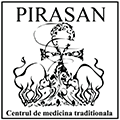Excesses of any kind, including alimentary excess and an erratic lifestyle, damage the brain tissue and in time trigger functional disorders which affect the anatomical structure. At cerebral level, two of the most common diseases are dementia and Alzheimer.
Alzheimer is the most severe form of dementia; it develops pathological alterations in the hypothalamic area and in the brain cortex, the areas where the centres of memory, speaking and reason are located. The patients with Alzheimer have an acute lack of cerebral oxygenation. In Alzheimer, the neurons from the frontal part of the brain will die, because they have run out of regenerative potential. The muscular system will give in little by little. Communication abilities, memory and neuromotor control will deteriorate.
Alzheimer is a cerebral disease that is triggered by the acute lack of cerebral oxygenation. The main cause of the cerebral hypo-oxygenation is arteriosclerosis, a disease of the cardiovascular system that reduces largely the blood supply to the cerebral area. Another major factor that will trigger Alzheimer is the accumulation of aluminium in the body. The human body can assimilate large amounts of aluminium before the respective person displays a distinct symptomatology. The metals may be taken from (inappropriately tested) drinkable water reserves, from pesticides and from many other sources. Seventy percent of the human body is water. Any component in excess will cause disorders and affect health.
Mineral and vitamin deficiency is another factor predisposing to Alzheimer. A diet rich in preserved foods will aid these deficiencies to settle in the body, and therefore will help trigger the degenerative processes at cerebral level. Thyroid dysfunctions are also triggering factors for Alzheimer and dementia. Contrary to the opinions of specialists in allopathic medicine, that Alzheimer is an incurable disease and that a patient can only be maintained in an acceptable condition till death, the traditional medicine provides actual resources and methods that restore the balance of patients with Alzheimer or dementia, making them able to recover their cognitive capacities and lucidity.
In traditional medicine, the treatment of Alzheimer includes extracts from medicinal herb mixtures containing Gingko Biloba among others. Another remedy is made according to prescriptions that contain Korean or Chinese ginseng.
It is an acknowledged fact that traditional medicine specialists neither deny nor wish to fight the allopathic methods of treatment. On the contrary, the real traditional medicine specialists agree to the allopathic treatments, should they prove beneficent to the patient in moments of crisis; afterwards, they will restore the balance of the body by specific methods. However, in the course of history, it has been proven that traditional therapeutic techniques and methods can provide treatment to any disease.

